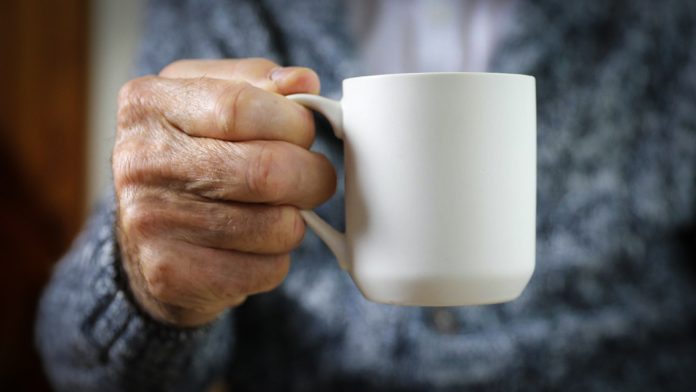The salutary and malign results of the standard espresso bean have been debated for hundreds of years. A broadside posted at a London coffeehouse method again in 1674 celebrated the brew as a “Grave and healthful Liquor, that heals the Stomack, makes the Genius faster … Revives the Unhappy, and chears the Spirits, with out making Mad.” The makers of Postum, a espresso substitute, begged to vary, nonetheless, warning customers within the late 1800s {that a} cup of java was as harmful as morphine, cocaine, nicotine, or strychnine — and will even rob them of their sight.
Calmer (maybe decaffeinated) minds have prevailed in trendy instances as varied research have highlighted each the advantages and risks of espresso consumption. A 2017 meta-analysis of 201 research, as an example, concluded that espresso drinkers get pleasure from a decrease threat of growing numerous ailments, together with some cancers, Parkinson’s, sort 2 diabetes, metabolic syndrome, and a few liver circumstances when put next with those that abstain. However researchers additionally discovered proof that the caffeine in espresso may complicate a being pregnant and lift the danger of fractures in ladies. Sure brewing strategies, they famous, produce espresso which will additionally result in elevated levels of cholesterol.
“Espresso consumption appears usually secure inside normal ranges of consumption, with abstract estimates indicating largest threat discount for varied well being outcomes at three to 4 cups a day, and extra more likely to profit well being than hurt,” the authors concluded. “Importantly, outdoors of being pregnant, current proof means that espresso could possibly be examined as an intervention with out vital threat of inflicting hurt. Girls at elevated threat of fracture ought to probably be excluded.”
As a lot as the talk over espresso’s results has cooled through the years, such a prescription will not be more likely to be welcomed by these of us whose relationship with the bean has been extra fraught than pleasant. For a few years, I required two cups of espresso each morning to forestall the throbbing headache that might emerge with out my caffeine repair. It was an efficient, albeit addictive, routine till I started affected by a racing heartbeat, also referred to as tachycardia, each afternoon.
I consulted my trusted homeopath, who beneficial that I stop my morning espresso behavior (?!?!) and supplied a treatment (Coffea cruda) to ease the following complications. Three days later, I used to be caffeine- and headache-free. I finally started to greet every morning with a steaming cup of chai and now typically get pleasure from a day latte with no unwell results.
All of this makes me notably attuned to rising analysis that makes an attempt to hyperlink espresso consumption with explicit well being outcomes. Simply final week, for instance, The New York Occasions described a research offered on the annual assembly of the American Society for Diet that not solely celebrates the coffee-and-health connection but additionally appears to argue that the extra you drink, the more healthy you’ll be as you age.
The paper, which has not been peer-reviewed or revealed, tracked the well being standing and low consumption of some 47,000 feminine nurses who participated in a large-scale research that started within the Nineteen Seventies. As Alice Callahan reviews in The Occasions, the ladies responded each few years to questionnaires asking them about their dietary habits and caffeine consumption. Among the many individuals who had been nonetheless alive in 2016, those that drank essentially the most espresso per day throughout center age had been 13 p.c extra seemingly than those that drank the least quantity to attain “wholesome getting old” on the age of 70 or older.
These wholesome nurses, researchers realized, quaffed about seven cups per day.
That could be a bit greater than vital, says lead research creator Sara Mahdavi, RD, PhD, a College of Toronto adjunct professor of dietary sciences. Earlier analysis has argued that these well being advantages could not accumulate after your third or fourth cup, and a research revealed final month in The Journal of Diet means that extra average consumption could yield even higher outcomes.
Fang Fang Zhang, MD, PhD, and her Tufts College analysis group tracked the well being standing and low habits of some 46,000 U.S. adults between 1999 and 2018 and located that those that drank one to a few cups a day had been about 16 p.c much less more likely to die from any trigger throughout the next 9 to 11 years than those that prevented the beverage.
Why espresso could produce such life-enhancing advantages stays stubbornly mysterious. However researchers have pointed to a wide range of chemical substances within the beverage that supply anti-inflammatory properties and others that serve to decrease oxidative stress — each of which have a tendency to forestall mobile injury.
There’s a catch, although: The life-extending advantages Zhang’s group uncovered solely utilized to those that drank their espresso black. Sprinkle in a half teaspoon of sugar or add a tablespoon of cream, they concluded, and your expiration date is probably not delayed.
I suppose that makes my creamy afternoon latte a bit ineffective as a life-extension instrument, however that was by no means its enchantment. Once I take into account my conflicted historical past with the vexatious espresso bean, I’m simply completely satisfied I can bask in a satisfying cup on a reasonably common foundation. It could not provide me a extra expansive lifespan, however that’s OK. Life’s too quick to accept a bitter brew.
The publish PUMPING IRONY: A Cup of Confusion appeared first on Expertise Life.


